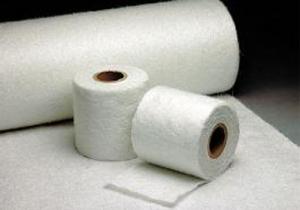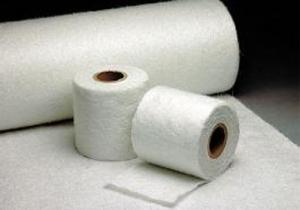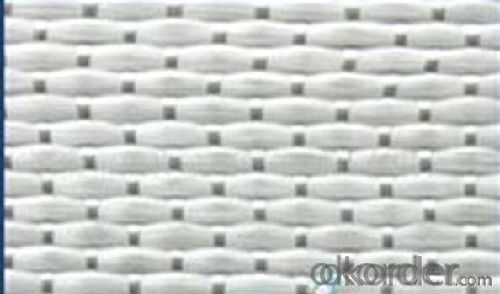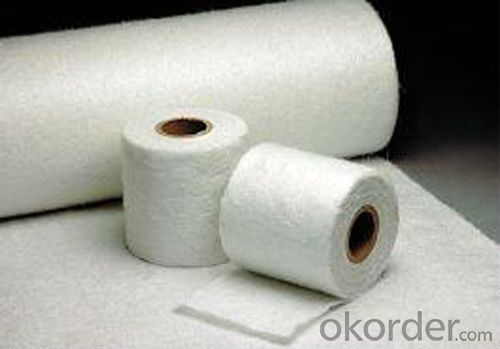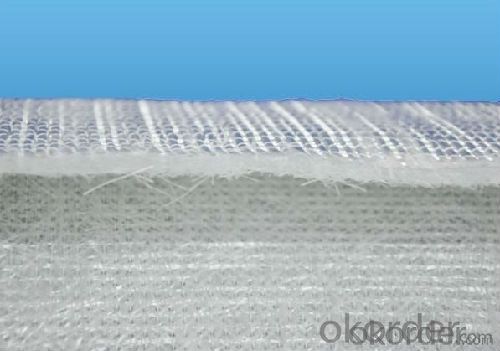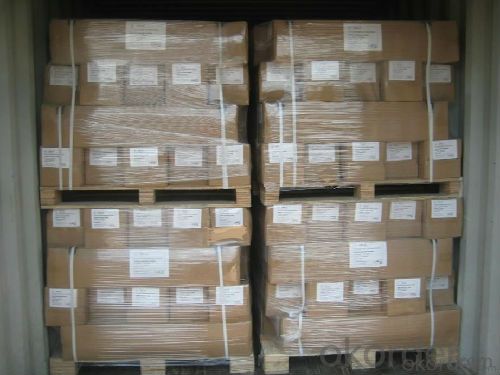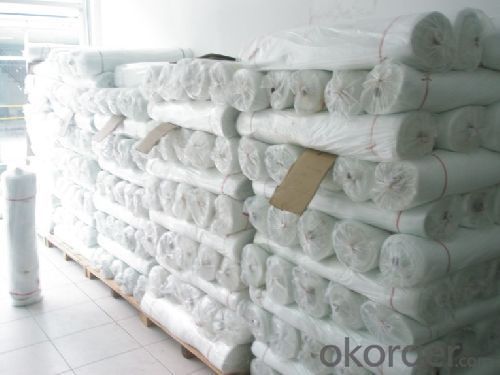FIBERGLASS SANDWICH FABRIC COMPLEX MAT 1300g 200~2600 mm
- Loading Port:
- Shanghai
- Payment Terms:
- TT or LC
- Min Order Qty:
- 5000 m²
- Supply Capability:
- 200000 m²/month
OKorder Service Pledge
OKorder Financial Service
You Might Also Like
Description & application | |||||||||||||||||||||||||||||||||||||||||||||||||||||||||
◎ This mat is the multi-layered combination mat, generally made by mechanically stitching layers of roving or woven roving or chopped strand, in this case to one or both sides of synthetic fiber core (PP or PET), like a sandwich. The complex mat generally also be made from a combination of woven roving which are mechanically stitched with mats made of chopped strand to form the “bread”. Some complex mat even have no roving or fabric (i.e. complexes stitched from mats and veils without fabric layers). In all cases, the layers are mechanically stitched to the synthetic fiber core. It is mainly applied in the hand lay up, RTM and other close molding processes.
| |||||||||||||||||||||||||||||||||||||||||||||||||||||||||
| |||||||||||||||||||||||||||||||||||||||||||||||||||||||||
Advantages
◎ The structure of sandwich to increase strength, reduce product weight and better surface finish. | |||||||||||||||||||||||||||||||||||||||||||||||||||||||||
| |||||||||||||||||||||||||||||||||||||||||||||||||||||||||
| |||||||||||||||||||||||||||||||||||||||||||||||||||||||||
| |||||||||||||||||||||||||||||||||||||||||||||||||||||||||
Each roll is wrapped by PE film and then packed into carton. Stacking in bulk or palletized is available; the pallet shall be no higher than 2 layers.
| |||||||||||||||||||||||||||||||||||||||||||||||||||||||||
1. Do you offer OEM service?
Yes, we can print customers’ logo on the packaging;
And the size and specification can be produced and design according to your demand.
2. What is the Production Lead Time?
15-20 days for bulk production after confirm the order.
fiberglass fence panels fiberglass fence panels
3. What is your MOQ?
Our MOQ is 5000 kgs.
- Q:How long does fiberglass mat tissue last?
- The lifespan of fiberglass mat tissue can vary depending on various factors such as its quality, usage, and exposure to external conditions. Generally, fiberglass mat tissue is designed to be highly durable and long-lasting. When properly installed and maintained, it can typically last for several decades. However, it is important to note that fiberglass mat tissue can deteriorate over time due to environmental factors such as UV exposure, moisture, and temperature fluctuations. Continuous exposure to harsh weather conditions, extreme temperatures, or chemicals can accelerate the degradation process. To maximize the lifespan of fiberglass mat tissue, it is crucial to follow the manufacturer's guidelines for installation, maintenance, and periodic inspections. Regular inspections can help identify any signs of wear, damage, or degradation early on, allowing for timely repairs or replacements. It is recommended to consult with a professional or the manufacturer for specific information regarding the expected lifespan of a particular fiberglass mat tissue, as it can vary depending on the specific product and its intended application.
- Q:What are the different surface finishes available for fiberglass mat tissue?
- Fiberglass mat tissue offers a variety of surface finishes, each with its own unique properties and advantages. One option is a smooth or fine finish, which gives the fiberglass mat tissue a smooth and even texture. This finish is commonly used in applications that require a high-quality surface appearance, such as cosmetic uses or when the mat will be painted or coated. Another choice is a textured or coarse finish, which adds texture and grip to the surface of the fiberglass mat tissue. This finish is often utilized in situations where increased friction or traction is necessary, like in flooring or decking materials. A third possibility is a fire-retardant finish, which provides extra fire resistance to the fiberglass mat tissue. This finish is frequently employed in applications where fire safety is a concern, such as building materials or insulation. Furthermore, there are finishes available that offer specific properties, such as enhanced chemical resistance, UV resistance, or improved durability. These finishes are commonly used in situations where the fiberglass mat tissue will be exposed to harsh environmental conditions or chemicals. Ultimately, the selection of a surface finish for fiberglass mat tissue depends on the specific application and desired properties. By choosing the appropriate finish, manufacturers can ensure that the fiberglass mat tissue meets the required performance standards and delivers the desired performance characteristics.
- Q:How is fiberglass mat tissue used in the production of pipes and tanks?
- Fiberglass mat tissue is used in the production of pipes and tanks as a reinforcement material. It is applied to the surface of the pipes or tanks to enhance their strength, durability, and resistance to corrosion. The mat tissue provides additional structural support and helps to prevent cracking and leakage, ensuring the longevity and reliability of the pipes and tanks.
- Q:Can fiberglass mat tissue be used for repairing fiberglass surfboards?
- Yes, fiberglass mat tissue can be used for repairing fiberglass surfboards. It is a common material used in surfboard repairs as it provides added strength and stability to damaged areas.
- Q:What is the flexibility of fiberglass mat tissue?
- Fiberglass mat tissue possesses a remarkable quality known as flexibility, which grants it the capability to bend, conform, or shape itself to various forms or surfaces without succumbing to breakage or compromising its structural integrity. The distinct characteristics of fiberglass, such as its exceptional strength-to-weight ratio and dimensional stability, allow the mat tissue to retain its flexibility while upholding its robustness and longevity. This adaptability endows fiberglass mat tissue with versatility, rendering it suitable for an extensive array of applications spanning from automotive components and construction materials to boat manufacturing. Furthermore, the flexibility of fiberglass mat tissue facilitates effortless cutting, shaping, or layering to meet specific design specifications or seamlessly integrate into intricate or curved surfaces.
- Q:Is fiberglass mat tissue suitable for wind energy applications?
- Yes, fiberglass mat tissue is suitable for wind energy applications. It is commonly used as a reinforcement material in wind turbine blades due to its high strength-to-weight ratio, excellent fatigue resistance, and ability to withstand harsh environmental conditions. The fiberglass mat tissue enhances the structural integrity and durability of the blades, enabling them to efficiently capture wind energy and sustain long-term operation.
- Q:Is fiberglass mat tissue suitable for construction applications?
- Yes, fiberglass mat tissue is suitable for construction applications. Fiberglass mat tissue is a versatile material that is commonly used in construction due to its strength, durability, and resistance to various environmental factors. It is often used in applications such as roofing, flooring, insulation, and wall panels. Fiberglass mat tissue is an excellent choice for construction projects because it provides reinforcement and stability to various materials. It adds strength to roofing materials, making them more resistant to impact, weathering, and fire. Similarly, it enhances the strength and durability of flooring systems, making them capable of withstanding heavy loads and foot traffic. Additionally, fiberglass mat tissue is an effective insulation material. It can be used to insulate walls, ceilings, and floors, helping to maintain a comfortable indoor temperature while reducing energy consumption. Its thermal and acoustic insulation properties make it an ideal choice for construction applications. Moreover, fiberglass mat tissue is resistant to moisture, chemicals, and corrosion, which makes it suitable for use in areas with high humidity or exposure to harsh chemicals. It does not rot or decay, making it a long-lasting option for construction projects. In conclusion, fiberglass mat tissue is well-suited for construction applications due to its strength, durability, insulation properties, and resistance to various environmental factors. Its versatility and reliability make it a popular choice in the construction industry.
- Q:Can fiberglass mat tissue be used for waterproofing?
- Yes, fiberglass mat tissue can be used for waterproofing. Fiberglass mat tissue is a thin, non-woven material that is made from fiberglass fibers. It is commonly used in construction and building applications to provide reinforcement and waterproofing properties. When applied with a waterproofing agent or resin, the fiberglass mat tissue can create a waterproof barrier that helps to prevent the passage of water or moisture. This makes it an effective choice for applications such as roofing, basement waterproofing, and bathroom or shower installations. The strength and durability of fiberglass mat tissue also make it resistant to cracking or tearing, ensuring long-lasting waterproofing protection.
- Q:Is fiberglass mat tissue resistant to alkalis?
- Indeed, fiberglass mat tissue exhibits resistance against alkalis, making it a suitable option for construction and industrial purposes that involve interactions with alkaline materials like cement or concrete. Its design specifically caters to providing exceptional durability and longevity within such environments, thanks to its high resistance against alkalis. This durability stems from the chemical composition and structure of the fiberglass, which enables it to withstand the corrosive impacts of alkalis without any degradation. Hence, fiberglass mat tissue emerges as a dependable choice for projects requiring exposure to alkalis.
- Q:Can fiberglass mat tissue be used for making lightweight ceilings?
- Yes, fiberglass mat tissue can be used for making lightweight ceilings. It is a strong and lightweight material that is commonly used in construction for its fire resistance, durability, and insulation properties. It can be easily molded and shaped to create lightweight ceiling panels, making it an ideal choice for applications where weight reduction is desired.
1. Manufacturer Overview |
|
|---|---|
| Location | |
| Year Established | |
| Annual Output Value | |
| Main Markets | |
| Company Certifications | |
2. Manufacturer Certificates |
|
|---|---|
| a) Certification Name | |
| Range | |
| Reference | |
| Validity Period | |
3. Manufacturer Capability |
|
|---|---|
| a)Trade Capacity | |
| Nearest Port | |
| Export Percentage | |
| No.of Employees in Trade Department | |
| Language Spoken: | |
| b)Factory Information | |
| Factory Size: | |
| No. of Production Lines | |
| Contract Manufacturing | |
| Product Price Range | |
Send your message to us
FIBERGLASS SANDWICH FABRIC COMPLEX MAT 1300g 200~2600 mm
- Loading Port:
- Shanghai
- Payment Terms:
- TT or LC
- Min Order Qty:
- 5000 m²
- Supply Capability:
- 200000 m²/month
OKorder Service Pledge
OKorder Financial Service
Similar products
New products
Hot products
Related keywords
